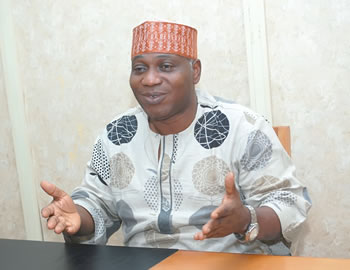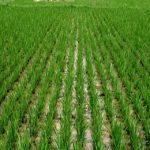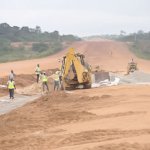COLLINS NNABUIFE spoke with the National President of Nigeria Cassava Growers Association, Pastor Segun Adewumi, on the activities of herdsmen in farms and how to use cassava to grow the economy, among other issues.
What did the association make from the last National Cassava Summit held recently?
It was good that we held that summit, it was an enlightenment programme for people. Cassava is our gold, it is a better economic promoter than the fossil fuel, because cassava can actually give us something more than N15 trillion.
So, to make cassava a national product is something we are trying to work on, as well as create the enlightenment on it. Secondly, cassava is something that can be grown, cultivated all around the country.
The nation is targeting $5 billion annually from cassava, is this realistic?
It is very modest, but in our own case, I think we can target something more than that if we focus on cassava. Let me give you a simple analysis; in this country, we have 84 million hectares of arable land, if we could use just five million hectares for cassava farming, that means we will be able to get 200 million metric tonnes of cassava.
From the 200 metric tonnes, if we look at the industrial starch for example, at the ratio of four tonnes of fresh cassava roots to one tonne of cassava starch, that is about N350,000 as being sold now and it will translate to N20 trillion.
And there are other things we call byproducts, so we can actually make money. Besides that, we will also create employment. So cassava is actually what we need in Nigeria to move forward.
What exactly are we not doing right to promote cassava?
What former President Olusegun Obasanjo did on cassava was inspirational, it was an inspiration for him, he saw the vision, but as a President, he wouldn’t have gone out to start planting cassava himself.
He sold the vision to us, but those who implemented it did not actually get the strategy to do it well, it was picked up by the former Minister of Agriculture, Dr Akinwumi Adesina and that was the area of cassava bread.
He (Adesina) was convinced that he could continue it and other countries that heard of it like Cameroon, Brazil and other countries are now putting 20 per cent of cassava flour into their bread, Nigeria is yet to achieve that.
The problem is the implementation strategy, the last administration did their best but due to certain problems which the present administration is trying now not to fall into.
For instance, N10 billion was released for the promotion of cassava bread, so the N10 billion was shared between the growers, processors, the master bakers and other areas where it was necessary, in our own case, the Bank of Agriculture (BOA) disbursed to us, we cultivated 29,500 hectares, by the time the cassava was matured, I think something was wrong with the processors, the bank did not disburse to them, so they didn’t have the equipment to take off, so the cassava rotted away because there was no processing and by the time some of them got the facilities by themselves, the working capital that was supposed to be given to them was not available.
So, maybe because of banking problem, our cassava rotted away, so all these are the things that the present government is looking at to make sure they don’t fall into the same mistake.
The nation is targeting 45 million jobs from cassava alone, what can be done to achieve this?
There has to be a Cassava Committee that will drive it, you cannot drive a commercial programme in the ministry system, it has to be commercially done, so majority of the members will come from the private sector.
Secondly, we said there are two types of cassava programmes, there is the one for the smallholder and the Industrial cassava, mechanized farming does not require much people, but at the same time, it will trigger industrial revolution.
The three major cassava products; ethanol, industrial starch and cassava flour are raw materials for numerous industrial items with limitless market potential.
We import over N600 billion worth of ethanol into the country, the ethanol we produce is just two per cent of what we use in this country, you can see how much we can save. For the cassava flour, we are thinking we could save N300 billion from the importation of wheat if it is substituted with 40 per cent cassava flour, so these are areas that will create jobs.
In Cassava Growers Association, we are looking at youth empowerment through cassava farming, we are thinking if a contiguous land of about 10,000 hectares is cleared by the government and demarcated into blocs of 10 hectares each, and allocated to youths, every youth will make N2 million profit after their allowance yearly and if you now want to help the youth and look at it as a career, then we add five hectares to the portion of every youth until they have 25 hectares, they will be earning N5 million every year and apart from that, we form them into cooperatives that can own processing factories, specialised equipment.
What do you make out from the present administrations diversification to agriculture vis-a-vis the budgetary allocation to the sector?
The fact is that the government position is the provision of enabling environment not actually putting money into the programme. As far as Nigeria is concerned especially our government in the south, they are not living up to expectations at all, in the north, they can have contiguous farms because they lack thick bushes. For instance, cassava is better cultivated in the north, it costs less in the south because bush clearing in the north is less, weeding is less, the soil type here is soft, you need to make heaps in the south because they have coarse soil but in the north, the soil is normally soft.
So, in diversification, we need to collaborate with the government to give them insight to what we know which they may not know.
What is your take on the herdsmen and farmers feud?
Our farmers need to be enlightened about herdsmen’s activities, when you have a farm, you have to do wire fencing around the farm, so the herdsmen that are moving in the night, if the farm has no demarcation, he will not even know when the cattle enter into the farm.
But if you do a demarcation, we call it wire fencing, except you want to do it maliciously and destroy the farm. That’s the value where we have big farms with clear demarcation, the question of herdsmen destroying the crops will not be there and it is safe for us. If you say there should be no cattle in your state, that means meat will be more expensive in your state.
Some of our farmers suffered over 70 per cent as a result of the activities of herdsmen in their farms. As a mature association and the need to promote peace, we called our farmers who are more than 1.5 million and told them not to engage in fight with the herdsmen, all our farms were insured by the National Agriculture Insurance Corporation (NAIC), all we need to do is to show evidence that your farm was actually ravaged and present it to NAIC, but we did that and NAIC wrote back to us that what happened in the farm was malicious damage which their insurance did not cover.
We appeal to the government to look into this, they said their insurance covers natural disasters like flood, locust invasion, but when it comes to malicious damage, when the farm is deliberately damaged they said it is not part of their insurance cover.
How much foreign exchange has cassava brought to the country in the last two years?
To be frank with you, don’t listen to anybody that says there is any foreign exchange brought by cassava apart from garri, there is nobody who can supply cassava to any other country for now because the cost of production here is too much for world market.
So, we have to have a world class planting practice of agronomy, for instance, the Minister of Agriculture told us that we have 30,000 tractors, but in South Africa, they have 85,000 tractors for over a million farmers, where an average farmer will have 2 to 3 tractors, so there is no way we can compete, but with the efforts being made now, slowly we will get there.
So, I can tell you authoritatively, there is no export of cassava except garri and when we are exporting it, the problem is that our gari is not recognised, you have to use the Ghana label, so we are talking to the government about the need to standardise and give us the power to compel the people that produce garri to standardise it, to sanitise it,, so they can’t just produce in an unclean environment and for the sake of lassa fever.






